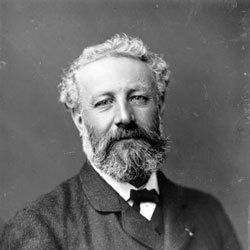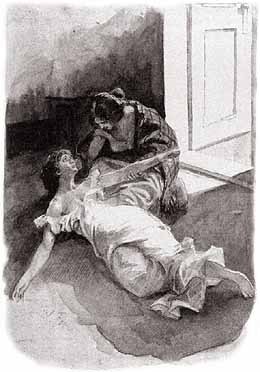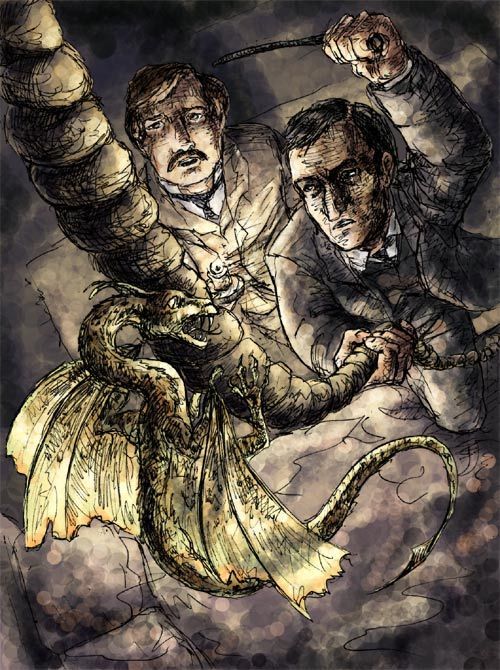Don't wanna be here? Send us removal request.
Text
Class of 92
The official story of the team that transformed United.
-----------------

There are two words in this sentence that you need to pay attention to, official and transform. Yes, this story is been told so many times in so many way that the word official becomes a necessary part of this sentence.
This is the story of Manchester United’s Class of 92. The team that, in my opinion, not only transformed Man United, but also shaped the football world.
Recently I’ve been flipping the book called the Class of 92 by Ian Marshall. I am currently two chapters into the book. As a life long soccer fan, I am fascinated by the content of the book, the stories that nobody else knows, the vibes in Manchester United’s most successful and shaky times.
The front and back cover of the book are two pictures of seven symbolic players of the Class of 92, one is taken when the empire has just started and the other is in modern time, taken probably in the 2010s.

Amateur soccer fans or even those who don’t watch any soccer activities might have heard of the name, Manchester United. They are just that well-known and influential. Today, Manchester United is the most financially developed football club in the world. It has the most advanced scout system, the best youth training system, the most loyal, life long fans. And all the glory, the fame, and the success of club, started in this book, going as early as the beginning of the First World War.
0 notes
Text
Before I go to sleep, I read “Before I Go to Sleep”.
Hey, it’s been about a week or two since the last post where I set up my reading goals. I finished half of if. Although I really enjoy the book that I picked, I didn’t meet my goals from last week, well, for various reasons. There were just so many things going on at once. I received decisions from five colleges in two days and that distracted me a great deal. There was also GJ work that I had to catch up with. Additionally some other important matters as well. But I am pretty sure the reading progress will get better once everything is back on track.

The most impressive scene that I grasped from the book was that the main character can’t truly trust anyone because she can’t remember anything from the day before. She lost her adult memories completely and she is having trouble storing memories. Wow, this sounds like a video game character who always dies and restart at checkpoint. I can’t imagine a life like this. This is the first part of her journey that a doctor is telling her to keep since her treatment began:
“My name is Christine Lucas. I am forty-seven. An amnesiac. I am sitting here, in this unfamiliar bed, writing my story dressed in a silk nightie that the man downstairs---who tells me that he is my husband, that he is called Ben---apparently bought me for my forty-sixth birthday. The room is silent and the only light comes from the lamp on the bedside table---a soft orange glow. I feel as if I am floating, suspended in a poor of light.”
After 50 pages in, a question starts to spin around my head. How big of a role does our memory play in defining who we are? From the book, Christine has lost basic surviving ability in the adult world since she has lost her memories. Without her memories, she can’t trust anyone; she can’t restart a normal life. Most importantly, she has lost all that defines who she is. How scary it is that you can’t remember anything about someone you have married for more than twenty years (assuming that is true)?! From Christine, imagine a whole human race has lost their common memory. How terrible will that be?
0 notes
Text
LAST MP SSR Goal~~~~~~
JAMES RODRIGUEZ!! GOAAAAALLLLLLLLLL!
Anyways, this Marking Period I am reading Before I GO to Sleep by S.J. Watson. Apparently this book is a widely believed page turner. So I am really excited about it. For half an hour in class, I’ve read 23 pages on this book. Now lets do some MATH. Okay, 4 times 23 equals? 92!!
So 92 pages for this week!
As for the goal for the marking period, I would like to finish this book in hand and move on to the Mysterious Island by Jules Verne. Both of these two books are really interesting novels with excellent stories!
Hala Madrid!
0 notes
Text
Jules Verne - Master of Science Fiction - The Mysterious Island
After my last post, I was thinking maybe it is time for me to move on to something else besides crime fictions. These novels, especially the Sherlock Holmes series, are one of the most awesome readings I have ever enjoyed. But there is no harm to switch my perspective from crime solving and moral arguments to simple adventure writings. As a result, I did some basic research on writers who are famous of their writing flow. Eventually, I've made my mind on Jules Verne's The Mysterious Island.

Verne has always been one of my favorite authors. The French is renowned for his "extraordinary voyages" in science fiction. I've read some of his work such as Twenty Thousand Leagues Under the Sea, and Around the World In Eighty Days (both in Chinese). Now, I am going to immerse in another one of his excellent adventures in The Mysterious Island, which according to the back cover, writes about "a group of men escape imprisonment during the American Civil War by stealing (Here it is again, Holmes) a ballon. Blown across the world, they are air-wrecked on a remote desert island. In a manner reminiscent of Robinson Crusoe, the men apply their scientific knowledge and technical skill to exploit the island's bountiful resources, eventually constructing a sophisticated society in miniature. The book is also an intriguing mystery story, for the island has a secret..."

That might to too long to savor, but I see some important clues here as I read through the first two chapters. First of all, these men, five in particular, ended up on an isolated island in the ocean because they were in search for freedom. Clearly, there was a enormous risk to take because they took off during a hurricane. What's also clear is that these prisoners actually turned a uninhabited island into a prosperous miniature. Does that tell us something about freedom, courage, and wisdom?

In the first chapter, there is a scene that gives a significant impression. When the ballon was leaking the gas and the elevation was dropping drastically, the passengers needed to do whatever necessary to lighten the weight of the ballon, otherwise they would all vanish in the deep, vast ocean. Here is part of a passage from the book describing the scene:
"They now resorted to the only remaining expedient. They were truly dauntless men, who knew how to look death in the face. Not a single murmur escaped from their lips. They were determined to struggle to the last minute, to do anything to retard their fall. The car was only a sort of willow basket, unable to float, and there was not the slightest possibility of maintaining it on the surface of the sea.
Two more hours passed an the ballon was scarcely 400 feet above the water.
At the moment a loud voice, the voice of a man whose heart was inaccessible to fear, was heard. To this voice responded others not less determined. 'Is everything thrown out?' 'No, here are still 2,000 dollars in gold.' A heavy bag immediately plunged into the sea. 'Does the ballon rise?' 'A little, but it will not be long before it falls again.' 'What still remains to be thrown out?' 'Nothing.' 'Yes! the car!' 'Let us catch hold of the net, and into the sea with the car.'
This was, in fact, the last and only mode of lightening the ballon. The ropes which held the car were cut, and the ballon, after its fall, mounted 2,000 feet. The five voyagers had hoisted themselves into the net, and clung to the meshes, gazing at the abyss."
Wow, isn't this sense amazing? Hanging on to the net 2,000 feet above the sea, no food, no water, no nothing is left. How much resolution and courage does it require! With this dramatic opening, I believe the future stories will be more intriguing.
#ssrccs#seahorseh12#jules verne#science fiction#the mysterious island#courage#determination#long post
1 note
·
View note
Text
Don't like tests? Here's what you might need!
Thinking this might be the time to put Sherlock Holmes aside for a little while, I recently read the book called, The Global Achievement Gap. I am totally dropping Sherlock Holmes; I just think saving the some stories for the future is probably better.
Anyways, this new book is not a novel, which is usually not my taste. But it has some very interesting ideas in it and they fit my identity, a 12th grade high school student, very well. Since it is a non-fiction, I am going straight to the point as well.
At the very beginning, the author, Tony Wagner, points out that instead of memorizing dates of historical events, grammars, and formulas, students in modern education should be tested on the following "Seven Survival Skills":
1. Critical Thinking and Problem-Solving
2. Collaboration across Networks and Leading by Influence
3. Agility and Adaptability
4. Initiative and Entrepreneurialism
5. Effective Oral and Written Communication
6. Accessing and Analyzing Information
7. Curiosity and Imagination
Just from reading this, I have sense a revolutionary change in the idea of current standardized testing system. Students go through middle and high school education with countless law-required tests. As a result, schools and teacher are told to teach just what's on the test. Eventually, this phenomena undermines the accountability of the testing system. Ever since the No Child Left Behind policy in 2002, American education quality is generally considered worse.
Wagner offers an potential alternative for the situation. He recommends the College and Work Readiness Assessment, or CWRA. This new test is used in a number of very prestigious private schools for testing ALL of the student. The main project of inventing new assessment, the Collegiate Learning Assessment, or the CLA, has a basic "performance assessment", which requires students to demonstrate their reasoning, problem-solving, and writing skills in a 90 minutes test. The new program is "challenging, and the results from the test tell us a great deal about the Seven Survival Skills." It's price is also less than half the cost of an AP exam, at about $40 per student.
Even though assessments such as performance-based or portfolio-based have great advantages and promises towards a more applicable future education need, I think there are still some concerns within this process. For example, the current standardized tests are easily unified national wide, making enrollment and measurement for schools and colleges more convenient. But how can assessments such as the above two be easily adapted and used in the nation? It will be a great task to accomplish since different states have assorted regulations on testing. Secondly, performance-based and portfolio based assessments are more complicated grading-wise. Department departments have to hire and train more experts or test officials just to grade the assessments. How can a test that requires so much human work cost less than a computer graded test?
Nonetheless, I still believe the current testing policies and the test itself need a change and alternatives such as CWRA has real potential to invent a new and unprecedented form of standardized tests. But there are definitely room for improvement in the present progress.
#ssrccs#seahorse12#seahorseh12#standardized testing#cwra#testing alternative#global achievement gap#tony wagner
0 notes
Text
Some thoughts on Sherlock Holmes; sometimes it's nice to simply read a crime fiction.
I have finished the major stories of the book such as A Study of Scarlet and The Sign of Four. Unfortunately, the rest of the shorter stories in the book, although well-written, lack a sense of intensity, especially for readers like me. There is something missing in those abridged plots: death, evil, and horror. I guess you can argue that a crime fiction doesn't need all these elements to be good as interesting, as Sir Conan Doyle had done in the book. But to me, dead victims, dangerous investigation, background context/motivation of crime, and final climax are critical to make an awesome detective novel, a classic Sherlock Holmes.
Lucky, I have found that sense of intensity back in this chapter, The Speckled Band. This short story contains everything a major series would have, complex background history of the victim and criminal, vicious motivation and evil mind, extremely dangerous and intense investigation that involves threats to Holmes or Watson, and eventually, a typical Sherlock Holmes finish. Although this one implies deeper and crucial indication to the greed, evil, immorality, and all the bad things in human nature that the author usually points out, I still think it is probably time for me, or Sherlock Holmes lovers, to just immense in the first paced, intense, and exciting plot, and simply the plot of solving a murder.

As usual, here's some context: A lady, Helen Stoner, asked assistance from Sherlock Holmes because she was feeling unsafe and she worried that her stepfather was going to harm her. She lived with her stepfather in a small town. The stepfather, Roylott, was the current, and final member of a very wealthy family. However, seeing there is not much to gain from his inheritance (as usual, greed), Roylott headed to India and exploited some fortune for himself. He married a rich widow, who died a fews years later, after he returned to London. The two daughters of the widow, were to inherit a large amount of the widow's wealth if any of them got married in the future. Here's the turning point. Two nights before the wedding of the older sister, she died in horror and shock in her bedroom, which was right next to Roylott's room. There was a wide-believed suspect on the stepfather, but no proof was found. Right now, Miss Stoner was about to get married and due to the reconstruction of the house (initiated by the stepfather!), she had to move to her dead sister's room (creepppppy!). After all the amazing details in solving the case, Holmes and Watson caught Roylott doing the sacrilegious murder. However, Holmes managed to turn the lethal "tool", an Indian swamp adder, back against his secret trainer. Eventually, Roylott was killed by the snake that he used to murder his stepdaughter. Later, the police identified the case as "an accident of playing with dangerous pet." Holmes didn't tell anyone else about the truth but Watson and Miss Stoner (again, how should judgment and punished be enforced?).

I know I've been saying how great this short story is on intense plot and detailed description of investigation, but I haven't really reflected that in my post. I simply think there is no way for me to rewrite the excellence of this book in writing technique and fascinating description of the details. Those of you who enjoy holding your breath while reading, I think this one will do you good.
After all, I guess I still have some reflection upon this story beyond just scene. How could people murder their own stepchildren just because they are going to take away some parts of the inheritance? I know greed is part of the human nature, but isn't love among family members also a human nature? Why do one outweighs another?
1 note
·
View note
Text
What's in a goose's neck? Something worth thinking from "Sherlock Holmes"
In the chapter, The Blue Carbuncle (375-396), Sir Conan Doyle, the author of Sherlock Holmes, took me to another journey of his own judgement on crime. This time, fortunately, nobody died or injured. This time, however, no one was sent to court for lawful judgement. This small difference raises my curiosity on "measuring" justice. How should criminals be punished?

Here's some context: Mr. Sherlock Holmes, received a goose carcass and a hat from Mr. Peterson, who found these two mysteriously matched items, and, with a warm heart, needed Mr. Holmes' help to figure out the owner. Holmes developed dramatic interest on this case after they have found a blue carbuncle from the dead goose's neck! The jewelry happened to be the one that was lost at a hotel a few days ago. The case ended with James Ryder accusing John Horner for stealing the gemstone. However, after Holmes' investigation, James Ryder was proofed to have stolen the blue carbuncle and framed Horner up for the crime. Surprisingly, Ryder tried to avoid attention and suspicion by hiding the jewelry in a goose's neck, which he eventually mixed up and ended up in Mr. Peterson's hands.
What's more astonishing to me is Holmes' reaction to James Ryder. The detective simply let James go because he was disgusted by Ryder's action and exhausted within. Here is what Holmes said to Watson after the case:
"After all, I am not retained by the police to supply their deficiencies. If Horner were in danger it would be another thing; but this fellow(James Ryder) will not appear against him, and the case must collapse. I suppose that I am commuting a felony, but it is just possible that I am saving a soul. This fellow will not go wrong again; he is too terribly frightened. Send him to jail now, and you make him a jail-bird for life. Besides, it is the season of forgiveness. Chance has put in our way a most singular and whimsical problem, and its solution is its own reward." (396)

Right there, doesn't it sound like Holmes is challenging the basic principle of human society? One shall be punished for his or her sins, and the law is the dominating approach to carry out that punishment. But in this case, letting the criminal go seems as if a better solution. Is commuting a felony a way of saving a soul? Is forgiving somebody better than send him or her to jail? After all, does Holmes, or Sir Conan Doyle, truly believes redemption through freedom and internal conscience, or do they feel helplessly because there is too much inevitable greed, hatred, and discord that come from the very human nature.
0 notes
Text
Need some cash? Begging might not be the worse idea...
27 January, 2015
From my recent reading on Sherlock Holmes, The Complete Stories and Novels, I have found some very interesting ideas, including not only specific case-solving techniques but also keen observations and reflections on the issues of the old English society, especially about its connection with the New World and Indian colonization. By pondering these fascinating themes, I always receive incredible questions that are not suppose to come from a crime fiction.

But in the chapter called The Man with the Twisted Lips, I have got something unique. Is it the government's fault that beggars make more money than legitimate workers? What causes this to happen? Should beggars be professionalized?
Here are some context. Sherlock Holmes was requested to investigate about the current status of news reporter Mr. St. Claris, who was seen being dragged into a second floor room by a stranger and disappeared. Mrs. St. Claris, the witness, confronted the house owner with the police but found nothing eventually but some blood stain on the windowsill and Mr. St. Claris clothes in a wardrobe. Hugh Boone, the only man who lived in that room, was arrested for high suspicion, but he insisted he had no clue about what happened. For context, Mr. Boone was a famous, witty beggar in London. He was considered the uglies, scariest, and filthiest in entire England. However, just when everybody thought Mr. St. Claris was dead, (skipping all the fascinating investigations), Holmes sponged the dirty face of Boone and it turned out to be the disappeared Mr. St. Claris.
At this point, I was shocked. Why would someone with a proper job as a reporter want to disguise as a beggar and walk among people years after years?! The story gives us some hints. For starters, being a beggar, Mr. St. Claris could easily earn £700 annually (about $92,000 today), which allowed him to save extras after his family's need. Secondly, begging was easy for him. Mr. St. Claris was good at witty words and winning sympathy.
No matter what, a reporter/beggar double identity just doesn't seem right to me. In this case, the "beggar" was actually deceiving people because he was not either hungry or homeless. Now let's put that aside, just how in the world can this happen? If a professional "beggar" can make more money than a white-collar, what is the point of education? I admit that this is pretty rare. But as a Chinese student, I could tell that professional beggars do exist, at least in China. They would shift locations hourly, depending on traffic and rush hours in the city. They usually cooperate; a man would lie down pretend he has fatal illness and a woman would kneel down beside him and beg for "treatment cost". A couple of hours later, they would switch roles.

(The aged consists most of professional beggar group in China. Picture Source.)

(After half an hour, they switch positions. Picture Source.)
Professional beggars exist in many countries. A beggar in West London is making £50,000 every year and lives in a high-end flat. It is a problem that exists in both wealthy countries and developing countries. After all, this is a serious question that the government should consider. How should we prevent it from happening? Personally, I think it ties up closely with income equality, unemployment, and high medical treatment cost.
Shaolong (Fred) Xue
5 notes
·
View notes